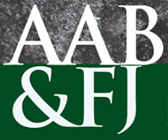Abstract
This essay outlines the preliminary structure of a moral ontology of accounting understood as discourse. To speak of an ontology of accounting is to speak of the most general features of accounting, those features of its existence that are present irrespective of variations in observed “accountings,” of ways in which accounting manifests itself in lived experience. To speak of a moral ontology is to construe those general features as products of human choices and actions which follow from axiological (value-based) commitments to pursue the good and just life, however that life might be understood, and indeed understood differently by different persons. Thus a moral ontology stands in distinction from, for example, a naturalistic ontology, one “freed from the freedom” of axiological horizons. Within its embeddedness in a moral ontology, the enactment of accounting takes empirical form as discourse – as an act of someone saying (writing) something about something to someone else (Ricoeur, 1976; Arrington & Francis, 1993). Thus if we seek to understand accounting’s force in the world, a force that is always valued and evaluated in terms of consequences for the good and just life, we get our most general understandings from attending to the ethics of language and its use. My task in this essay is to introduce the structure of what the elements of accounting’s relation to the ethics of language and its use might be. Expanding upon that structure remains a task for future work.
Keywords: Accounting, ethics, language, accountability, discourse ethics
How to Cite:
Arrington, C. E., (2007) “A Prolegomenon to the Relation Between Accounting, Language and Ethics”, Australasian Accounting, Business and Finance Journal 1(2), 1-12. doi: https://doi.org/10.14453/aabfj.v1i2.1
Downloads:
Download PDF
371 Views
973 Downloads

